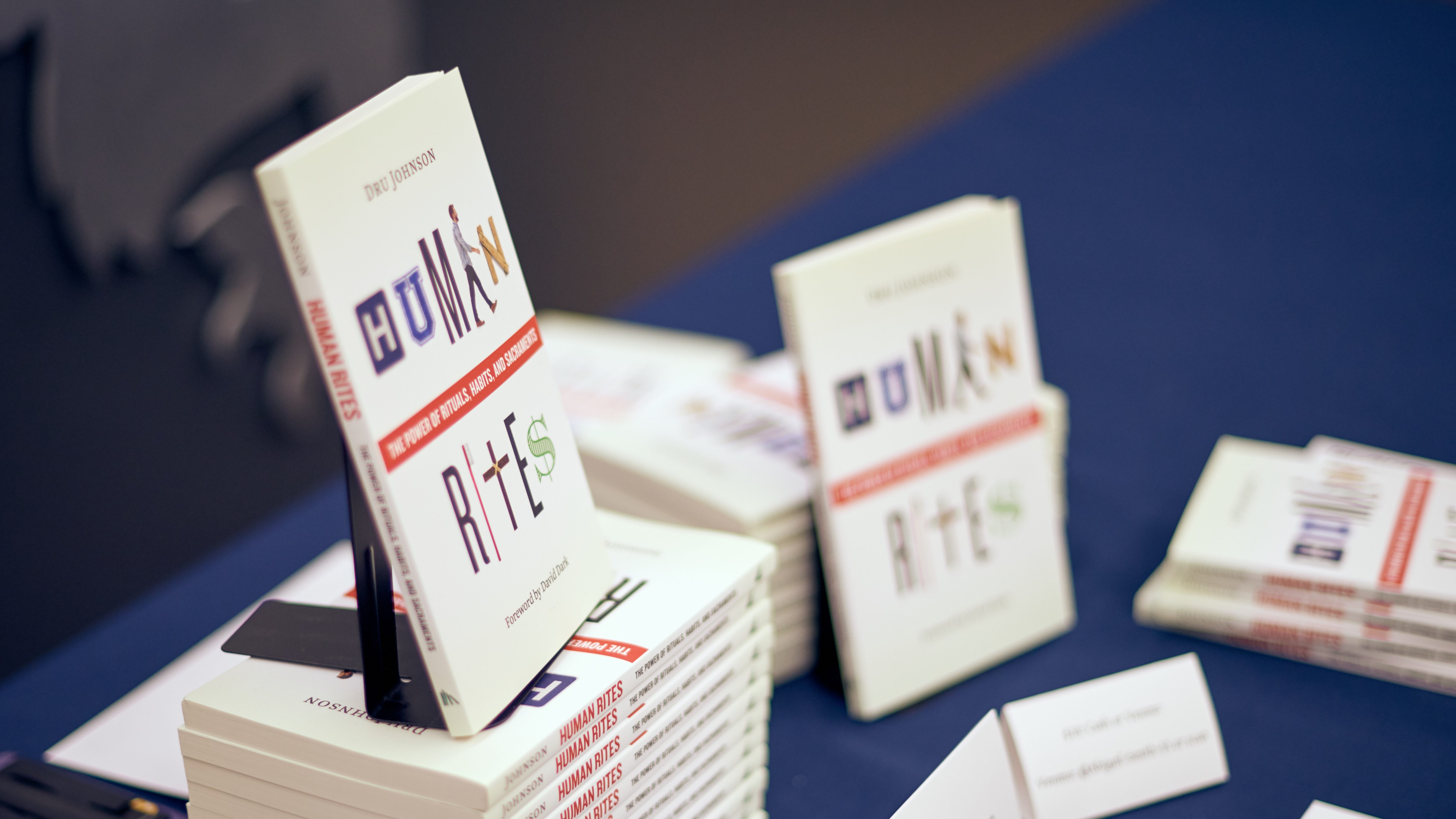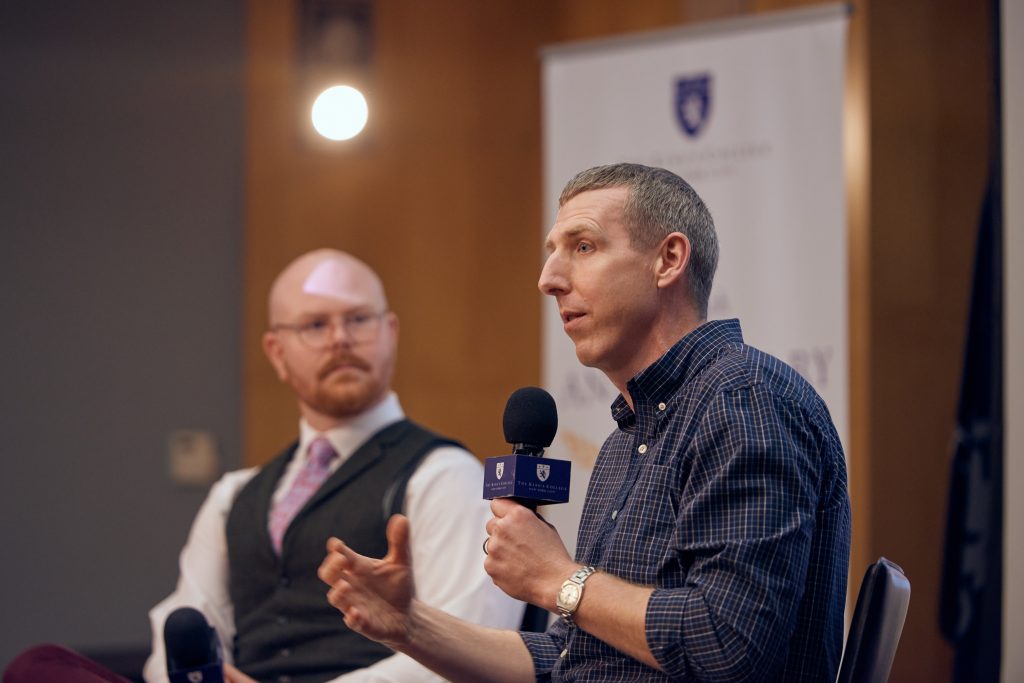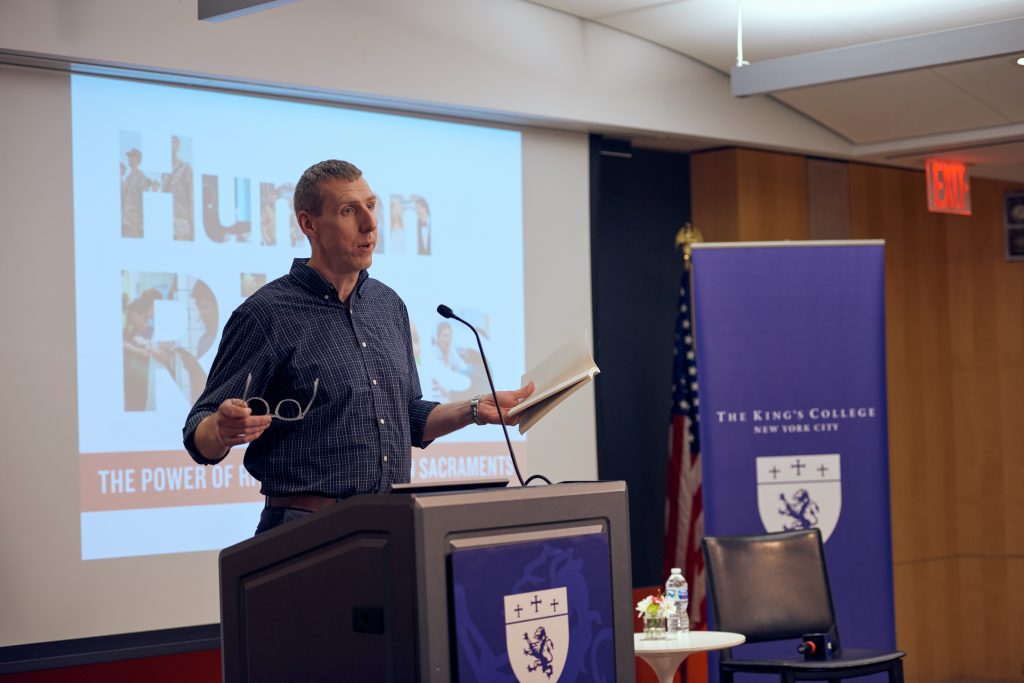Rev. Dr. Dru Johnson Launches ‘Human Rites: The Power of Rituals, Habits, and Sacraments’
‘Human Rites’ is an effort to help lay people understand how rituals condition their understanding and form their character, so that we can learn to practice those rituals that bring us closer to God.


On February 28, The King’s College welcomed the Rev. Dr. Dru Johnson, associate professor of biblical and theological studies, to discuss his newest book, Human Rites: The Power of Rituals, Habits, and Sacraments. The book explores the hidden significance of activities from the ordinary to the sacramental. After reading a passage aloud, Johnson discussed the themes in the book in conversation with Cameron Strittmatter, head of production at King’s.
WATCH: Dr. Johnson’s Book Launch Event for Human Rites
Johnson’s research defines a ritual as any ordinary process or event that has been remade for some specific purpose. For instance, weddings involve walking to meet someone, exchanging jewelry, and making promises. There is nothing inherently special about these activities, but weddings dramatize these activities. In the process, ordinary actions take on new meaning. Johnson pointed out that mundane activities such as making breakfast or checking social media can also become ritualized, for better or for worse.
Since rituals cannot be avoided, Johnson encouraged his audience to reflect on who is prescribing their rituals, and how those rituals shape them. Rituals compete for our time and attention, and holy rituals such as receiving the Eucharist are pitted against corporately sponsored rituals such as binge-watching Netflix.
During the question and answer portion of the event, Strittmatter probed the metaphor of a jungle that Johnson used in the book to describe what happens when rituals fail us. The passage reads,
All of us will be confronted with circumstances that leave us breathless and scriptless. Sometimes these circumstances are sudden and intrusive; other times they’re creeping and inevitable. Akin to being dropped into the thick of the jungle, scriptlessness envelops us, and no clear route emerges, no path to chop or trudge.
Johnson said that this image draws from his own experience traversing the Amazon rainforest while in the Air Force. During his time in the armed forces, Johnson was forced to rely on teenage guides because they knew how to survive in the deep jungle. These guides had access to ritual-based knowledge that Johnson did not share.
When our rituals break down, and we are left with a feeling of “scriptlessness,” we are most susceptible to blindly following the rituals handed to us from our peers or from those who wish to exploit us. The best approach, Johnson said, is to adopt the rituals of those who are wiser than ourselves, and with their guidance improvise the rituals available to us.
Johnson emphasized that the rituals we embody do more than reveal our inner thoughts: they shape who we become. Rituals in the Bible are meant to teach us something about God in way more powerful than words alone can. For instance, the Jewish people do not merely tell their children that their ancestors, the Israelites, lived in tents. Instead, they ritualistically reenact the event every year so that the knowledge may be reliably passed on. Human Rites is thus an effort to help lay people understand how rituals condition their understanding and form their character, so that we can learn to practice those rituals that bring us closer to God.
Human Rites: The Power of Rituals, Habits, and Sacraments is available for purchase through Amazon.






